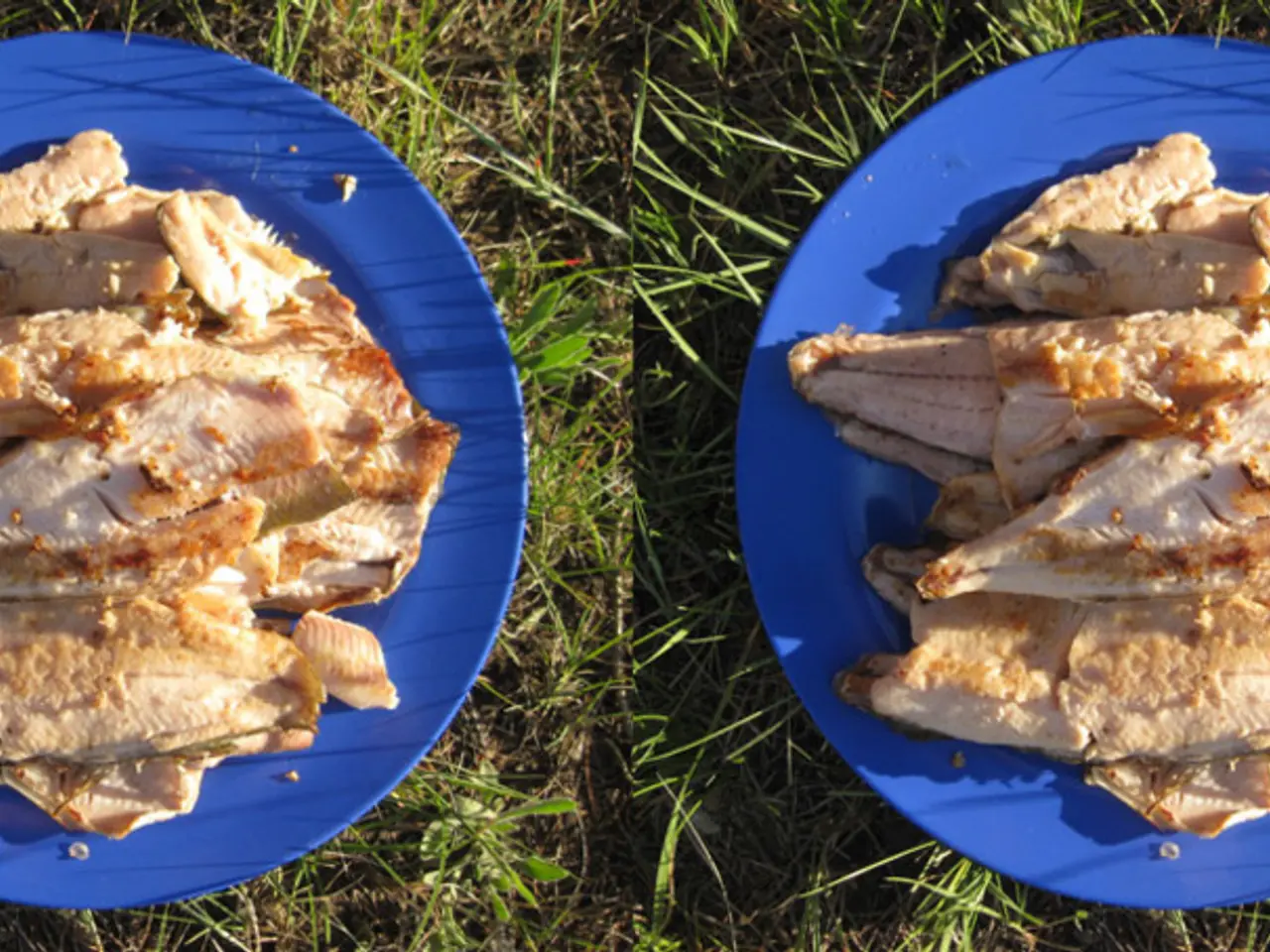Top Collagen-Boosting Foods to Consider
In the pursuit of maintaining youthful skin and overall health, collagen has emerged as a key nutrient. As the most abundant structural protein within the body, making up one-third of a person's total protein, collagen plays a vital role in giving structure and support to numerous tissues and organs, including the skin, blood vessels, bones, teeth, ligaments, cartilage, and internal organs.
However, the effectiveness of collagen supplements can be questionable due to their varying collagen content. A more reliable approach lies in a balanced diet rich in collagen-building amino acids and vitamin C.
Vitamin C-rich fruits such as citrus fruits, strawberries, kiwi, guava, papaya, and pomegranates are essential for collagen synthesis. These fruits not only provide vitamin C but also antioxidants and polyphenols that protect and promote collagen production. Bell peppers and red peppers, also high in vitamin C, support collagen synthesis.
Protein-rich foods, including eggs, legumes, beans, whole grains, dairy, fermented soy, and seaweed, provide the amino acids necessary for collagen formation. Key amino acids in collagen structure like glycine, proline, and hydroxyproline can be found in these foods.
Tropical fruits like mango and pineapple, rich in beta-carotene, vitamin A, and enzymes like bromelain, aid cell repair and support skin healing, indirectly benefiting collagen metabolism.
Regarding supplements, hydrolyzed collagen peptides are often used in studies and may support collagen levels. However, evidence comparing supplements directly to collagen-rich foods remains limited.
Interestingly, a study suggests that the release of amino acids could promote collagen formation in ligaments and tendons during exercise following the intake of collagen proteins.
As a person ages, their body produces less collagen, which can lead to issues such as wrinkles, sagging skin, and stiff joints. A small 2015 study investigated the effects of hydrolyzed collagen supplements on skin health and appearance in post-menopausal women, finding that the oral supplement led to a significant reduction in wrinkle depth and a noticeable improvement in skin elasticity and skin hydration.
However, it's important to note that people should limit or avoid foods containing excess added sugar to maintain collagen levels. Sugar can produce compounds called advanced glycation end products (AGEs) that can damage the body.
The Food and Drug Administration (FDA) does not regulate supplements, which may raise concerns about their contents, safety, or toxicity. Consuming a healthful and varied diet is likely to be safer and more beneficial for health, as it provides multiple nutrients that confer a wide range of health benefits.
Collagen supplements often derive from the skin and bones of animals such as cows and pigs, making them unsuitable for vegans, vegetarians, and some religious groups. Various forms of collagen supplements are available, including gelatin, collagen pills or capsules, collagen peptide powders, collagen protein powders, liquid collagen, collagen drinks, and marine collagen from fish skin.
The hydrolyzed collagen supplements may contain additional anti-aging ingredients like hyaluronic acid, vitamins, and minerals. However, the safety and efficacy of these ingredients should be carefully considered.
In conclusion, a balanced diet combining vitamin C-rich fruits, amino acid-rich protein sources, and antioxidant-rich foods is the strongest natural support for collagen production. Regular exercise may also promote collagen formation in ligaments and tendons. While collagen supplements can offer potential benefits, a healthful and varied diet remains the most reliable approach to maintaining collagen levels and overall health.
- In the realm of maintaining youthful skin and overall health, a balanced diet rich in collagen-building amino acids and vitamin C, alongside regular exercise, is the strongest natural support for collagen production.
- Fruits like citrus fruits, strawberries, kiwi, guava, papaya, pomegranates, bell peppers, and red peppers, along with protein-rich foods such as eggs, legumes, beans, whole grains, dairy, fermented soy, and seaweed, are essential for providing the necessary amino acids and vitamin C for collagen synthesis.
- Tropical fruits like mango and pineapple, rich in beta-carotene, vitamin A, and enzymes like bromelain, aid cell repair and support skin healing, indirectly benefiting collagen metabolism.
- Hydrolyzed collagen peptides, derived from animals like cows and pigs, are often used in studies and may support collagen levels; however, evidence comparing their effectiveness directly to collagen-rich foods remains limited.
- The Food and Drug Administration (FDA) does not regulate supplements, so it's essential to be cautious regarding their contents, safety, or toxicity, making a healthful and varied diet likely to be safer and more beneficial for health.




